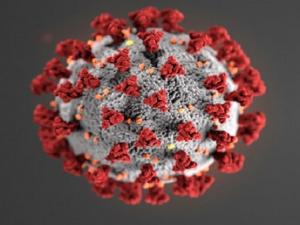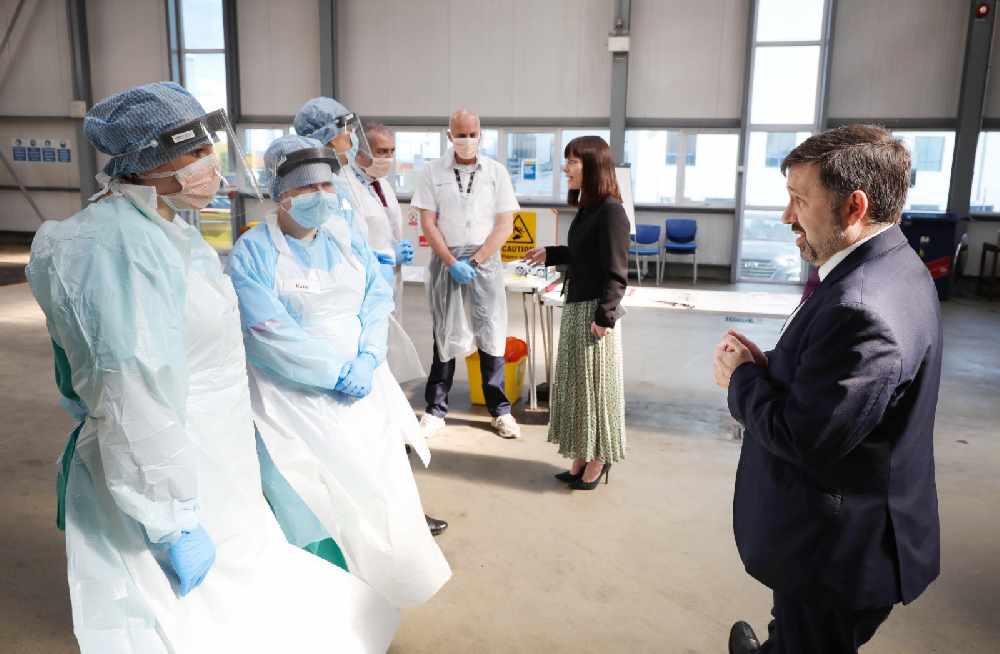
By Q Radio News
Another 26 people have died in Northern Ireland after contracting Covid-19.
It brings the death toll recorded by the department of health to 1,559.
A further 1,052 coronavirus cases have also been confirmed since yesterday.
It comes as the the chief medical officers in Northern Ireland and the Republic of Ireland issue a joint plea to the public to stay at home amid high levels of Covid-19 across the island.
“As CMOs, we are gravely concerned about the unsustainably high level of Covid-19 infection we are experiencing on the island of Ireland,” Dr Michael McBride and Dr Tony Holohan said.
“This is having a significant impact on the health of our population and the safe functioning of our healthcare systems.
“Unfortunately, due to the surge of infections we have experienced over the past few weeks, we have seen an increase in mortality figures and our health systems have been placed under immense pressure. We are likely to see ongoing increases in hospitalisations, ICU admissions and mortality in the weeks ahead.”
They added: “Many of the patients admitted to hospital in January have been under the age of 65 years. Covid-19 can affect us all, regardless of age or underlying condition. It highlights the need for us all to protect one another by staying at home. Not only will you keep yourself and your loved ones safe, but also help to save lives and avoid more preventable Covid-19 admissions to our currently struggling healthcare systems.”
Meanwhile the latest official statistics show that the number of deaths related to Covid-19 has now passed 2,000 in Northern Ireland.
Northern Ireland Statistics and Research Agency (Nisra) data shows 103 deaths involving the disease occurred last week.
Nisra's total now stands at 2,019.

Northern Ireland’s Health Minister Robin Swann has said it is “highly unlikely” that coronavirus restrictions will be eased at the end of the six-week lockdown on February 6.
He said the R-number has dropped from 1.8 immediately after Christmas to 0.7 this week.
“We’re still looking at 1,000 positive cases, on average, per day. Those are high numbers,” he told the BBC.
“We’re still looking at massive numbers in our hospitals, over 840 people still in hospital. We are in the middle of our six-week lockdown, we said we’d review where we are on January 21, as to what steps we will take on February 6.
“R is coming down but it is coming down from a very high level of number of cases so that decrease has to be maintained for a long period of time, for I would say, another two to three weeks before we can get those numbers of positive cases, before we can get the number of hospital admissions down so that we can really see the pressure starting to come off our hospitals and our health service.
“It will be highly unlikely that we will see any great easement of where we currently are. These conversations are being had by many governments across these islands, across the world, as to what steps we can take.”


 Nine Northern Ireland schools targeted with threatening email thought to be hoax
Nine Northern Ireland schools targeted with threatening email thought to be hoax
 Exhumed remains not those of Disappeared victim Joe Lynskey
Exhumed remains not those of Disappeared victim Joe Lynskey
 King and Queen conclude three-day visit to Northern Ireland
King and Queen conclude three-day visit to Northern Ireland
 Conor McGregor seeks to introduce new evidence in civil rape appeal case
Conor McGregor seeks to introduce new evidence in civil rape appeal case
 The UK’s ‘best places to live’ revealed in annual Sunday Times guide
The UK’s ‘best places to live’ revealed in annual Sunday Times guide